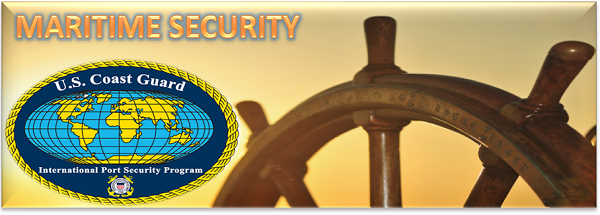
Activities Europe's team of International Port Security Liaison Officers (IPSLOs) work with all maritime trading countries within the unit Area of Responsibility. The IPSLOs are a vital part of the USCG's International Port Security (IPS) Program. The mission is to learn about maritime port security efforts and implementation of the ISPS Code in countries that conduct maritime trade with the U.S. through continual engagement. An IPSLO's efforts provide the opportunity to conduct on-site information exchanges, share best practices and capacity building seminars, and observe each country's efforts on maritime port security. The IPSLOs also facilitate reciprocal engagements to the U.S., thereby allowing other nations to view first-hand security practices in U.S. ports.
Background
Threats to the maritime transportation industry are not limited to storms, shoals, and other natural perils of the sea. The actions of terrorists, pirates, smugglers, stowaways, and criminals exploiting the sea for illicit ends has demonstrated the need for the world's flag and port states to work cooperatively to reduce risk. In an effort to codify and standardize a comprehensive approach to effective, consistent international maritime security, the International Maritime Organization (IMO) and its Member States developed the International Ship and Port Facility Security (ISPS) Code.
The U.S. Coast Guard's International Port Security (IPS) Program was established in 2003 to reinforce implementation of the ISPS Code as part of the U.S. Maritime Transportation Security Act (MTSA). Through the assessment of ISPS Code implementation and other anti-terrorism security measures in foreign ports and through bilateral discussions to share and align port security practices, the Coast Guard IPS Program seeks to reduce risks to U.S. ports and ships, and to the entire maritime transport system.
As an internationally accepted blueprint for maritime security measures, the ISPS Code serves as a sound foundation from which countries can build their own domestic maritime security system. Through its IPS Program, the U.S. Coast Guard is committed to assisting those nations that have not fully implemented the ISPS Code. We are also committed to furthering our engagement and security dialogue with our maritime trading partners that are moving beyond the ISPS Code through advancements in their maritime operational capabilities, maritime situational awareness, and maritime governance.
These efforts require international cooperation between the maritime industry and all flag and port states. By exchanging port security-related information and sharing best practices, we can better protect the international maritime transport system through the application of adequate and proportionate security measures. Ultimately, vessels arriving in the United States from foreign ports with adequate security measures are less likely to be targeted for port state control actions. This reduces potential delays and facilitates safe and secure maritime trade.
